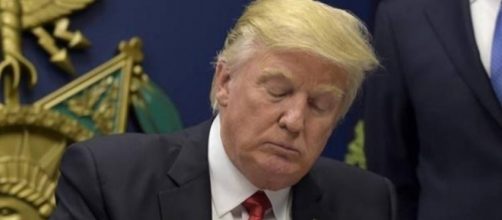From now onwards it will be difficult to get U.S. visa easily for some of the country members as Trump administration has instructed all its embassies to follow stricter rules to issue new visas. The new rule will apply even to relatives of American residents, business visa travelers, and tourist visa travelers who want to get a new visa to enter United States Of America.
Application of the rule
The Secretary of State Rex. W. Tillerson instructed all American embassy officials through diplomatic cables to increase scrutiny. This is the first step towards imposing stricter visa rules for new entry in U.S.
as promised during the election campaign by Mr. Trump and his team.
However, new rules will not apply to 38 countries with which U.S. has had diplomatic ties for years. The list of countries includes are most parts of Europe, Australia, New Zealand, Japan, and South Korea. Members on the included list of countries are covered under a 'visa waiver program' and they are entitled to enter speedily to The U.S.A. as before. Visa waiver program doesn't cover people from countries like the Middle East or Africa.
What will new visa rules cover?
Trump and his administration have decided not to wait for the federal court's decision on the travel ban. Instead, the administration has decided to go ahead with stricter scrutiny checks before issuing visas to new entrants.
Stricter new visa rules include questions about background checks, a compulsory check on social media history and checks to see if a person has traveled to any of the Islamic states in the past. Scrutiny checks also include past 15 year's work history, last 5 year's phone, email and social media history.
Cables sent from the office of the secretary of state have given powers to officials of embassies to deny the U.S. visa on security grounds. This will create delays in issuing visas and denial rate will also increase amid security concerns. This is clear now that getting a U.S. visa will be long and extensive. On 6th March Mr. President wrote a presidential memorandum ordering the secretary of state and officials to implement the tougher scrutiny checks before issuing the U.S. visa.

